Do any of these swimming pool myths sound familiar to you?
“Pool chlorine is bad for you.”
“Heating a pool is too expensive.”
“Swimming pools cost too much to install.”
and the classic…
“Peeing in the pool turns urine blue.”
You’ve probably heard all of these sayings at one point or another. And while a few swimming pool myths do hold some truth, most of them don’t. So today, we’re going to separate fact from fiction.
For many aspiring pool owners, swimming pool myths are the one thing stopping them from enjoying a completely different lifestyle. And for current pool owners, swimming pool myths are what prevent many from enjoying their backyard oasis to the fullest.
So join us while we go down the list of the most common swimming pool myths and debunk them, one by one.
20 Common Swimming Pool Myths Debunked
1.) You only get to use your pool when the weather is good
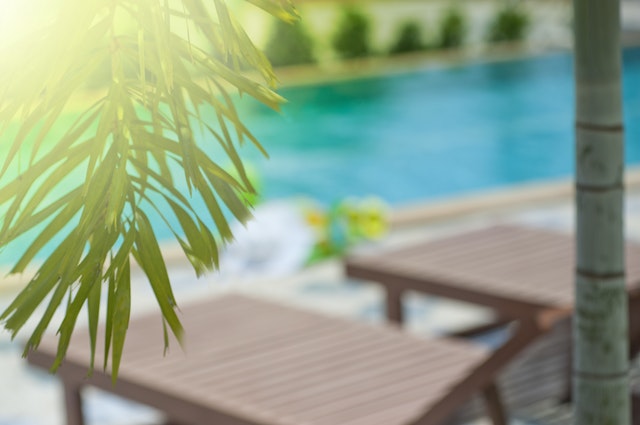


FALSE
Sure, good or bad weather can certainly limit your pool time – but it doesn’t have to. And while most people prefer swimming when the weather is warm and sunny, it’s not the only way to enjoy comfortable swims.
There are plenty of simple ways to extend your pool season, without breaking the bank. And we’re not talking a few extra days out of the year, but adding several months to your swim season that you otherwise wouldn’t have.
Here are a few ways to extend your pool season and swim more:
- Good: Use a solar cover (or solar rings) to lock in heat and keep your water warm
- Better: Use a solar heater for warmer swims during sunny weather
- Best: Use a pool heat pump to heat and cool your water on demand
Related: 7 Ways To Extend Your Pool Season By Up To 6 Months
2.) Heating a pool is expensive
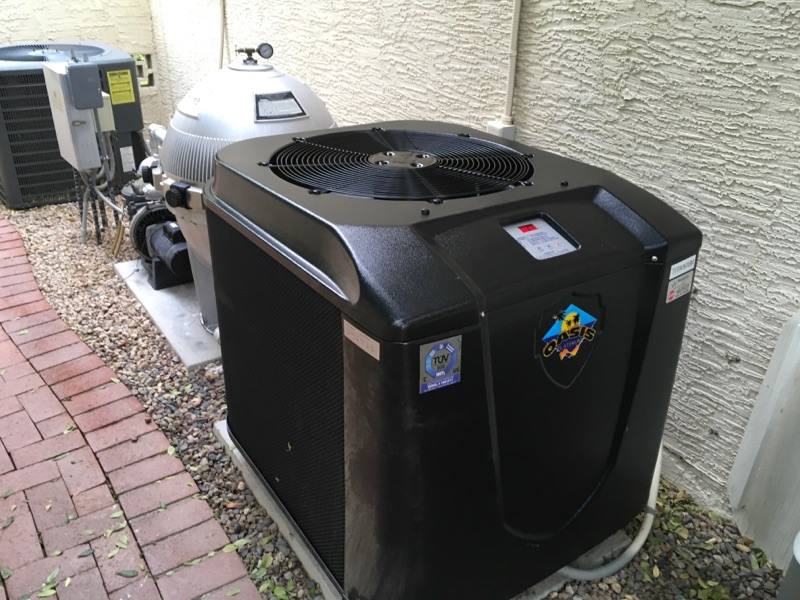


FALSE
We know what you’re thinking: “A heated pool would be great, but I can’t afford it”
Well, you’d be surprised.
While heating a pool may not be what some call cheap, it’s not the mountainous expense that people mistake it for either. In fact, most popular pool heating options these days are exceptional when it comes to energy efficiency and cost-effectiveness.
For instance, solar pool heaters can help warm up your water plenty as long as the sun is out. And they do it at a relatively low cost since they only need a pump and sunshine to work.
That said, since they’re greatly limited by available sunlight and heat, solar heaters may not be the best choice for pool owners looking for a year-round pool heating solution.
In comes pool heat pumps. Like solar heaters, pool heat pumps harness the power of the sun…but in a very different way.
Heat pumps rely on the actual heat created by the weather. They absorb the warmth in the air and pressurize it into a hotter usable heat for warming up your pool. Because of this, they’re able to provide heat in all types of weather and conditions.
Rainy days? Cloudy skies? Chilly 60 degree spring afternoons?
Not a problem for pool heat pumps.
Now at this point, you’re probably wondering about cost. Here’s a quick summary of monthly operating costs based on an average sized pool:
- Solar heaters
- $25-$125: Cheapest per month, but heavily restricted by sunlight and weather
- Pool heat pumps
- $50-$150: Affordable, and can heat your pool in 40-degree weather (with or without sunlight)
- Gas heaters
- $300 -$600: The fastest hands down, but also the most expensive. At least 3x the monthly cost of pool heat pumps
Related: 7 Cheap Ways To Heat Your Pool
3.) Heating a pool takes a long time
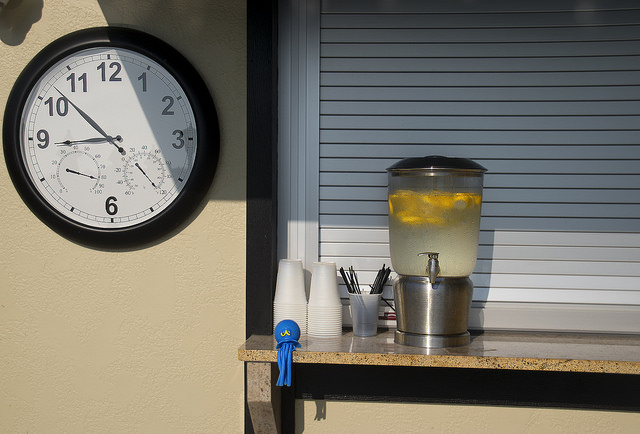


BOTH
Pool heating speeds can be fast or slow. It depends on a few factors:
- The type of pool heater you’re using
- Size of your pool
- The time of year
- Whether or not you’re using a pool cover
Each pool heating option comes with its own pros and cons. But at the end of the day, for most pool owners, it comes down to cost versus performance (heating speed).
Here’s a basic comparison of pool heater heating speeds:
- Solar pool heater (Slowest)
- 3-4 days to heat a pool by 20 degrees
- Costs $25-$125 per month. Heats the slowest
- Pool heat pumps (Faster)
- 1-2 days to heat a pool by 20 degrees
- Costs $50-$150. At least 2x faster than solar heaters.
- Gas pool heaters (Fastest)
- 24 to 36 hours to heat a pool by 20 degrees
- Costs $300-$600 per month. The fastest option.
Important: Keep in mind that heating a pool for the first time will always take the longest. But once it’s heated, keeping it warm is a pretty fast process.
4.) Pool maintenance is hard work
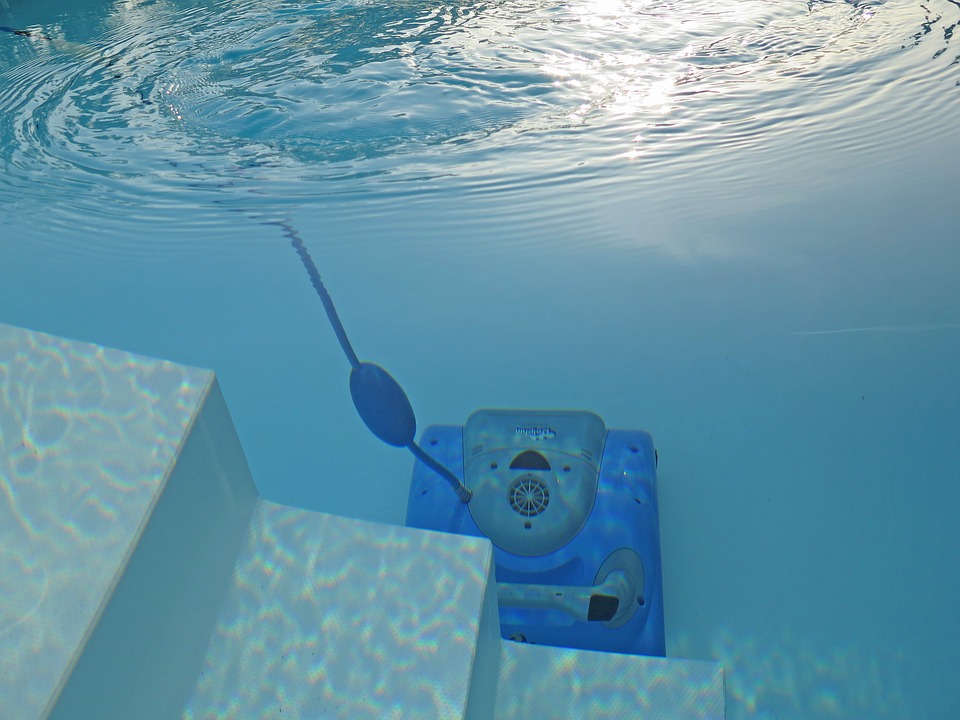


FALSE
Yes, while maintaining a pool and keeping it clean requires effort, it doesn’t have to be hard. And that’s why this is just another one of those swimming pool myths.
Because when it comes to pool maintenance, consistency is HIGHLY rewarded.
If you remember to clean and balance your pool each week, then the odds of having to deal with those several hour-long jobs you fear are slim to none. A well-maintained pool never gets the chance to become a time-consuming mess, BECAUSE it’s kept clean.
And naturally, this keeps your work at a minimum, because if your pool isn’t given the chance to get dirty, then what’s there to clean?
So here’s what that means in terms of a pool maintenance schedule:
- Skimming your pool at least twice a week
- Brushing and vacuuming at least once a week
- Testing and balancing your water at least twice a week
All in all, that equates to about 2-3 hours of work per week. At most. Not bad, huh?
And here’s a pro tip: If you keep your pool covered whenever you aren’t using it, you’ll not only keep it cleaner and reduce your workload. You’ll also save a bunch of money too (more on this later).
But it gets better.
What if we told you didn’t even have to do any of the above work yourself? (And no, we’re not talking about hiring a pool cleaner.)
Well, it’s possible with pool automation. Everything from robotic pool vacuums to automatic skimmers and chlorinators exist to makes your life easier as a pool owner. You can even set up your filter system and heater to run automatically on a schedule.
So basically, you can sit back while robots and automatons do all the pool maintenance for you.
Pool maintenance really doesn’t seem that bad now does it?
Related: 21 Pool Care Hacks That Make Pool Maintenance Easy
5.) Installing a pool is expensive and complicated
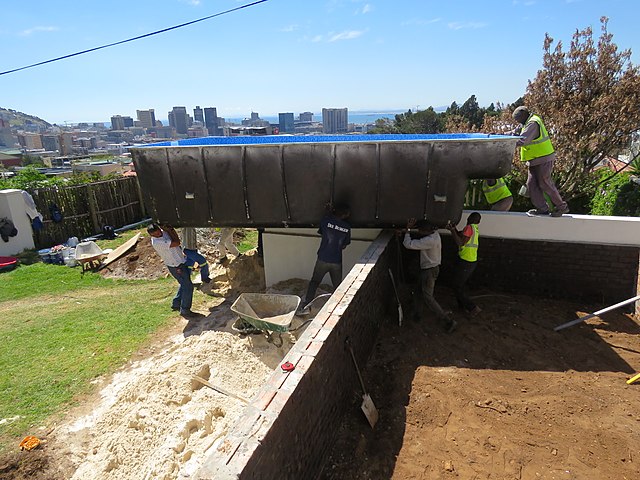


FALSE
While a few decades ago, this might have been true, pool builders and manufacturers have since wisened up to the times.
They realize that most people who want pools aren’t necessarily ready to drop a large sum of money all at once to fund it. So in response, many reputable pool builders offer financing programs that make it much more affordable.
And these days, most companies handle everything from building the pool to setting up the plumbing and filling it with water. So there goes the complicated part.
Of course, even with a variety of financing options and pool types available, some people might not be ready to make the commitment just yet. Thankfully, simpler alternatives exist.
If you’re thinking of getting a swimming pool, but aren’t ready to drop thousands, choose an Intex swimming pool. These are the inflatable and metal framed pools that you’ve likely seen pop up during the summer time.
They’re WAY cheaper than permanent pools, yet offer almost all the same features, including being heatable. Plus they’re easy as pie to set up by yourself, which means $0 installation costs. And they’re great for people with limited space in their backyards, as Intex pools come in a variety of sizes.
6.) Swimming pools cost a lot to own and maintain
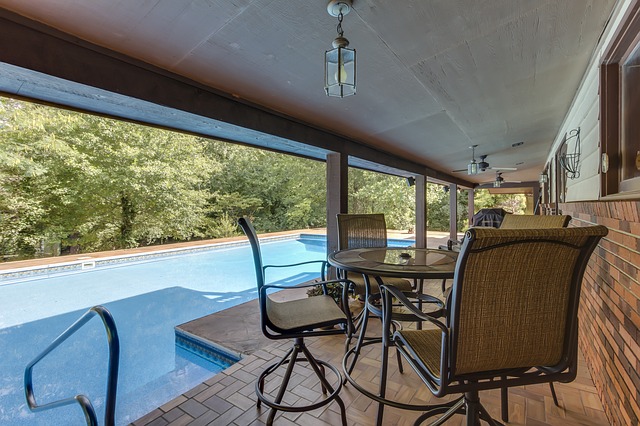


BOTH
While swimming pools can be an expense, they don’t need to be a large one.
It’s all a matter of your approach. The majority of your swimming pool bills will come from the equipment you run (your pump, heater) and the chemicals you buy.
So with that in mind, if you opt for energy efficient pool equipment, then you have much more control over your monthly expenses.
And if you’re consistent with pool chemical maintenance, then you’ll actually spend far less over time (because a pool that’s always clean doesn’t demand nearly as many chemicals as a dirty one).
Of course, it’s important to mention that certain permanent pools do require a bit of upkeep to stay in tip-top shape.
For example, concrete pools typically need replastering every 8-10 years or so. And vinyl pools usually need relining every 3-5 years. On the other hand, fiberglass pools require the least upkeep and only need occasional surface crack fillings (at most).
Related: 7 Ways To Lower Your Swimming Pool Bills
7.) Swimming pools add value to your home
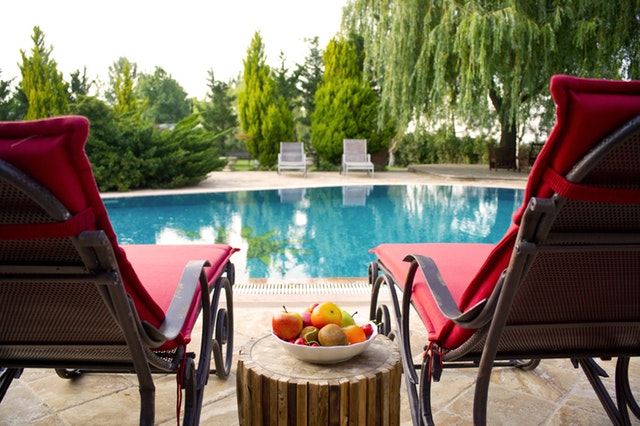


TRUE
Imagine this:
Two similar houses. Same neighborhood, same floor plan, same age, and both within the same price bracket. Except there’s one major difference. While one house has a small concrete patio area in the backyard, the other features an entire swimming pool and deck.
Which sounds more appealing?
There’s no denying that pools add a special kind of flair to any home. And that’s largely in part to what pools represent: quiet, peaceful, aquatic retreats just steps from your living room. Plus, they’re a convenient place to cool off during hot summer weather, and the perfect spot for family get-togethers and BBQs.
And let’s not forget how soothing it is to simply gaze into the glistening water while you sip an ice-cold lemonade and read your favorite book.
But if visual appeal isn’t enough, there’s also the benefit of monetary gain. When you install a permanent pool in your backyard, the value of your home increases. Hence why houses with pools always cost a bit more.
With that in mind, you can take ease in knowing that if you ever sell your home, a swimming pool only adds to your profit.
Related: 20 Benefits of Owning a Swimming Pool
8.) A clear pool is a healthy pool
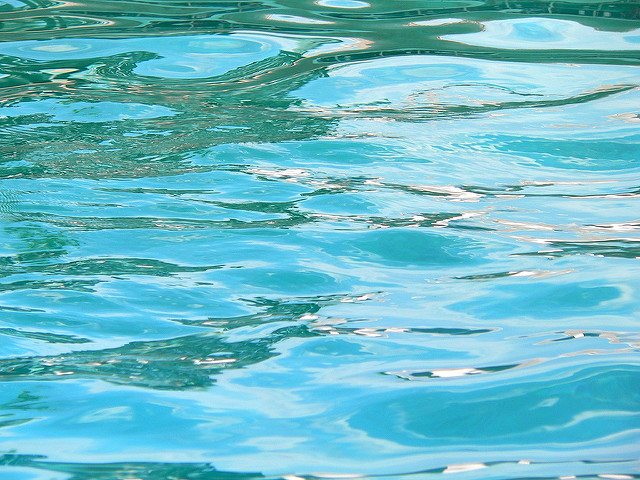


FALSE
If you’re looking for some of the most misleading swimming pool myths in existence, you found one.
While a clear looking pool is typically a sign of a healthy pool, it doesn’t mean that it’s clean. It’s more often deceptive.
Why?
Because even when your water looks as clear as glass, there’s plenty that can be happening on a microscopic level. A seemingly clean pool could have water that’s way out of balance, leading to more contaminants. And just because you cant see them doesn’t mean they’re not there.
This is why it’s so important to test and balance your water each week. Because no matter how clear that water looks, you never know what’s going on chemically until you test it.
Related: How To Test and Balance Your Water in 7 Simple Steps
9.) Chlorine is bad for your health
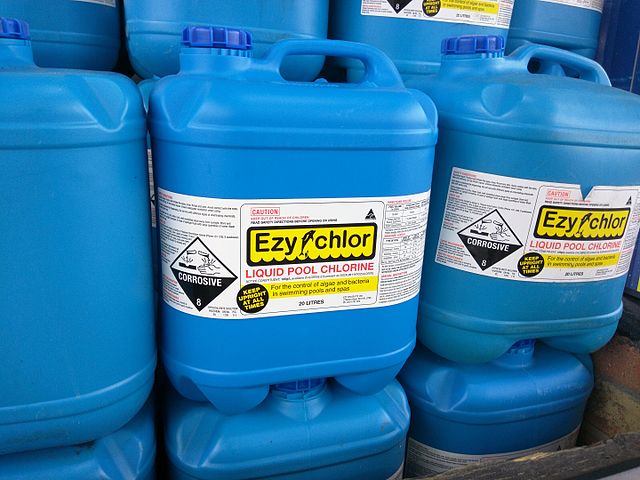


FALSE
Let’s start here: There’s chlorine in your tap water. The same water you bathe in, drink, and likely use for cooking.
In small amounts, chlorine is beneficial, and aids in sanitizing your water. It kills germs and prevents harmful pathogens from getting into your body and making you sick.
That said, with chlorine, moderation is everything.
So while we’d never advise drinking chlorine out of the jug (that WOULD be hazardous), we can say that it’s safe to add to your water in the correct amounts. For instance, most tap water contains chlorine levels of around 2-4 parts per million, which are scientifically proven to be safe levels for human consumption.
10.) Chlorine turns your hair green



FALSE
It’s not chlorine that turns your hair green. It’s copper.
Copper sulfate is a chemical that exists in your water and aids in preventing algae growth. But prolonged exposure to it can cause hair to begin taking on a green tint. Of course, there’s a simple solution to this…
Always wash your hair after swimming in the pool to rinse out any lingering chemicals.
And while chlorine isn’t what turns hour hair green, it can still dry it out over time. So again, always remember to rinse off after a good swim.
11.) Chlorine irritates your eyes if you open them underwater
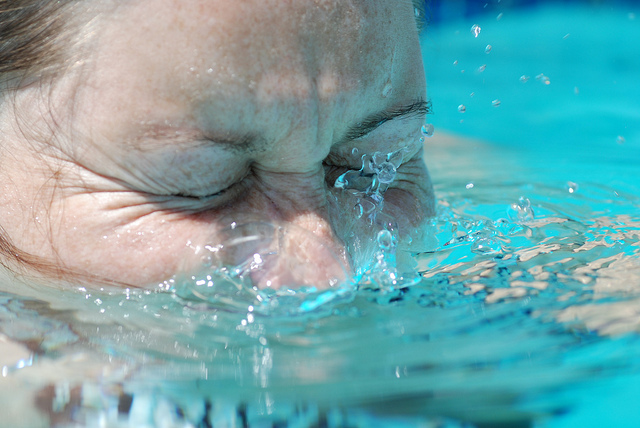


FALSE
It’s not the chlorine that causes eye irritation, but rather the byproduct of what chlorine is defending you from (contaminants).
Chloramines.
Chloramines are what’s leftover when the chlorine in your pool attacks and oxidizes contaminants. And the only time when chloramines are strong enough to cause irritation is actually when your chlorine is too low.
Talk about counterintuitive.
Bottom line: Having too little chlorine in your water is what irritates your eyes, not having too much
12.) The smell of chlorine means the pool is clean
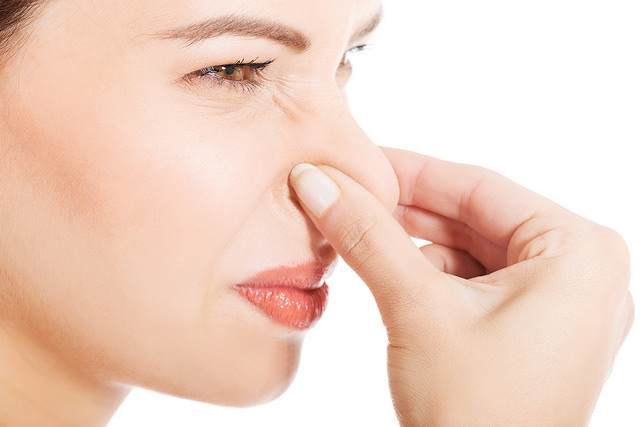


FALSE
This might be one of the biggest misconceptions about pools and chlorine.
In the same vein as the last point, the smell of chlorine actually means the opposite of what you would think. It means the pool is low on chlorine and high on chloramines.
That “chlorine smell” you’re referring to? It’s chloramines. And if you’re smelling them, then it’s a red alert that your pool is in need of more chlorine to continue sanitizing effectively.
So to clarify, being able to smell chlorine usually means that your pool needs more of it.
13.) Adding more chlorine to your pool fixes chlorine demand/lock
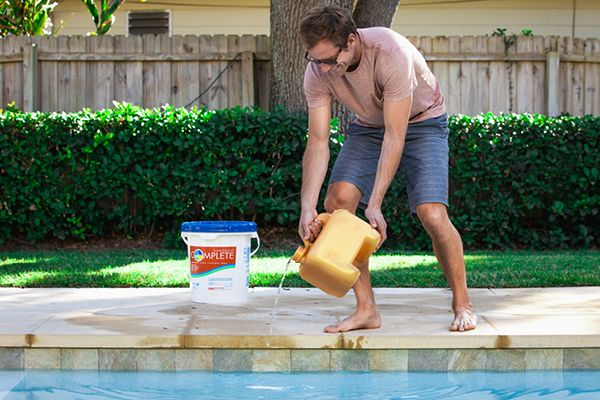


FALSE
Usually, it just makes it worse. Here’s why:
Chlorine demand isn’t caused by a lack of chlorine, but rather your pool’s inability to use it. All thanks to one special chemical called cyanuric acid (CYA).
CYA is added to pool chlorine to protect it from sun damage and help it last longer in your water. And while small amounts of it are highly beneficial, excessive amounts have the opposite effect.
Too much CYA makes your chlorine ineffective, and the more CYA you add the worse it gets.
But you’re probably wondering: “Wait, I haven’t added ANY cyanuric acid to my pool. What are you talking about?”
Here’s the thing: you have been, secretly. CYA is an ingredient in about 80% of chlorine products since, after all, it IS a chlorine stabilizer. Of course, most chlorine products won’t outright say “contains CYA” on the label, as it’s usually listed under another name.
So what’s the solution?
Add chlorine that doesn’t have CYA in it. Something like household bleach (chlorine alternative) is a good start. Otherwise, head to your local pool store and search for a CYA-free chlorine product.
Related: Easy Ways To Lower Chlorine In Your Swimming Pool
14.) Rainwater won’t affect your pool chemistry
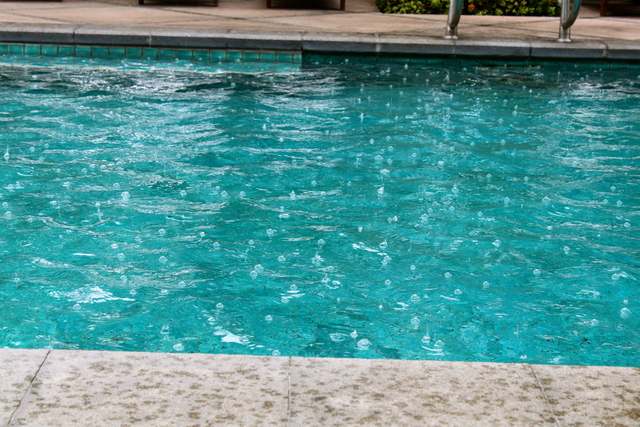


FALSE
Rainwater directly affects your pool’s pH and alkalinity. Both of which also impact other chemicals, like chlorine.
So, if you’ve ever wondered why your pool went from crystal clear one day to cloudy and green the next after a rainstorm, you now have the answer.
Related: 7 Things To Do To Your Pool After It Rains
15.) Pool water loss & heat loss is caused by evaporation
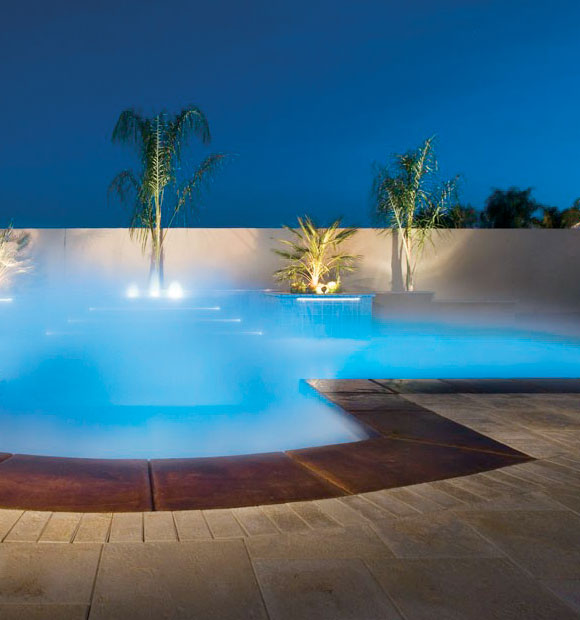


TRUE
About 75% of the water loss your pool experiences is due to evaporation. The same goes for heat loss.
Think of it this way:
You’re heating up two pots of water. One pot is covered and there other is uncovered.
Which one heats faster and retains more water? Obviously the covered one, right?
This same analogy applies to your swimming pool. By covering your swimming pool, you not only reduce water loss but also improve heating efficiency by a landslide.
Bottom line: If you own a pool, you DEFINITELY want to keep it covered as often as possible. It saves you money and drastically improves pool heating
Related: A Quick Guide To Swimming Pool Covers & How To Choose The Best One
16.) Saltwater pools don’t use chlorine
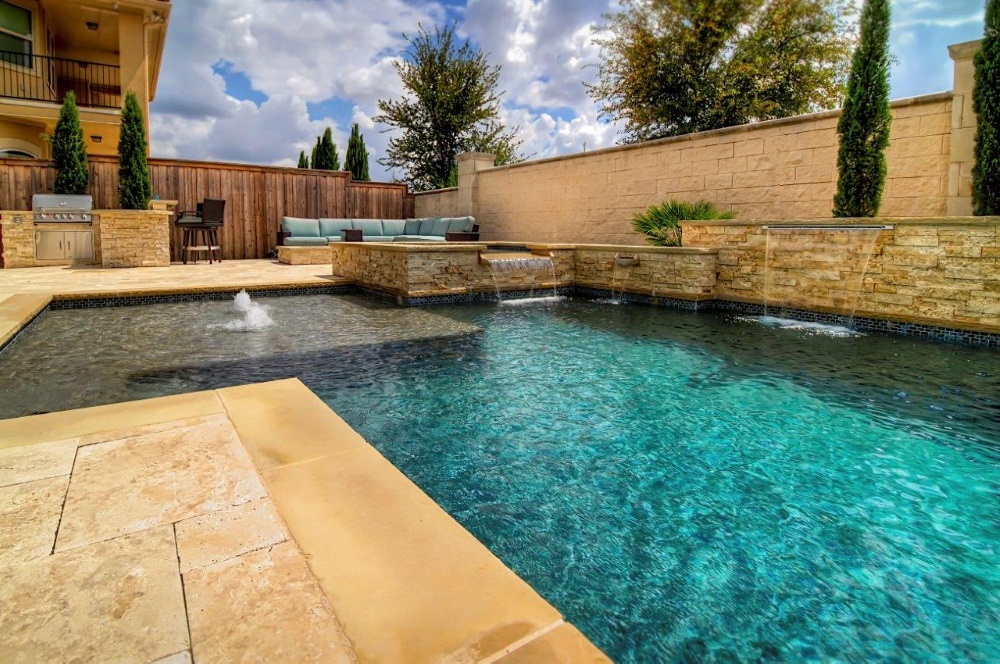


FALSE
You don’t have to add liquid chlorine to a salt water pool, but that’s because it produces its own chlorine.
How?
With the help of a saltwater chlorine generator.
A saltwater chlorinator takes salt and converts it to usable chlorine for your pool. But since this type of chlorine involves a much simpler creation process, it results in noticeably softer water that’s gentler on the skin.
Related: 9 Benefits of Saltwater Pools
17.) You should shower before getting in the pool
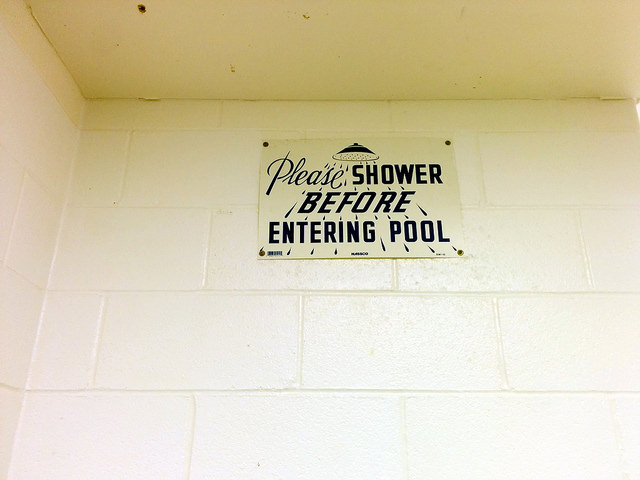


TRUE
While in theory, you don’t HAVE to shower before jumping in the pool, you probably should.
And here’s why:
When you get into your pool without showering, you introduce a load of contaminants in the water. From sweat and natural body oils to cosmetics and lotions. All of this gets mixed into the water and wreaks havoc on your chlorine and pH. And from there, your pool chemistry starts going downhill.
This is why pools sometimes go from crystal clear to cloudy overnight after a big pool party. On top of a heavy swimmer load, all those extra contaminants make your sanitizer work overtime. And in the end, all that does is cost you more in chemical supplies.
So if you want to keep your workload to a minimum, remember to rinse off before swimming.
18.) To avoid cramps, you have to wait one hour after eating before swimming
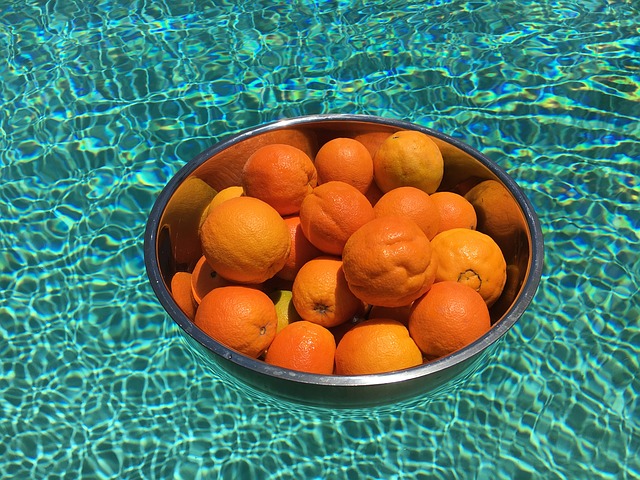


FALSE
While jumping around after eating might cause some indigestion, the claim that swimming on a full stomach gives you cramps is false.
Cramps can happen at any time for a number of reasons. But simply getting in the water and wading around isn’t enough to trigger them.
As long as you don’t overexert yourself, as with any physical activity, you won’t have issues with swimming after a eating.
19.) Peeing in the pool is harmless
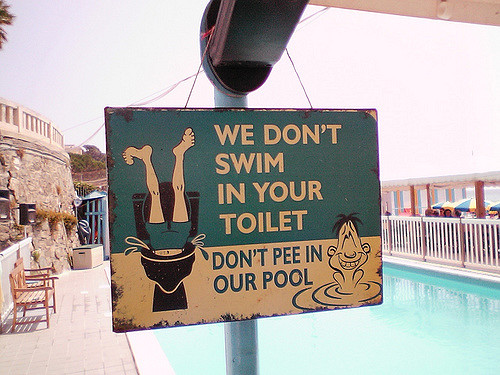


FALSE
If it’s a one-time thing, it’s mostly harmless to the person doing the act, but the pool is the one that suffers. Urine is a contaminant, simply put. And it reacts to your pool chemicals exactly how you’d expect it to, by using up chlorine and dirtying your water.
That said, large concentrations of urine in the water CAN quickly create a hazardous environment. So avoid letting anyone use your pool as a toilet if you want to keep it clean and healthy.
For more info: This article from PopSci further explains the hazards of peeing in the pool
20.) Peeing in the pool turns urine blue
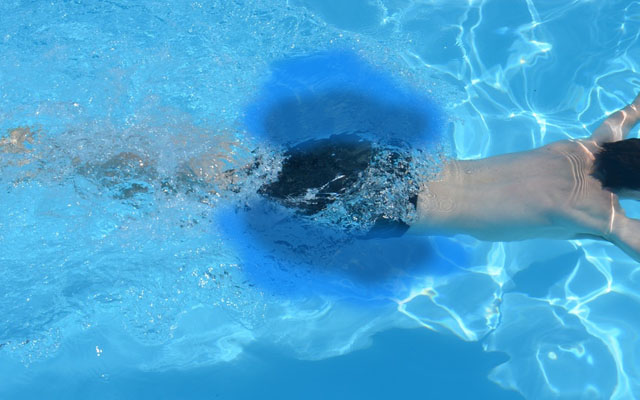


FALSE
This might be one of THE biggest swimming pool myths of all.
There is no such dye that turns pee blue in the pool. It’s just a folk tale used to scare kids from peeing in the water.
But hey, if it seems to be working, maybe we should keep this one between us and let the myth live on.
We kid. But in all seriousness, while creating such a chemical wouldn’t be impossible, it’d be challenging. And this is mostly because creating a chemical that ONLY reacts to urine and no other contaminants would be complicated, to say the least. More often than not, it would turn other liquids (sweat, cosmetics) in the pool blue too.
Extra.) You don’t need to close your pool during the winter
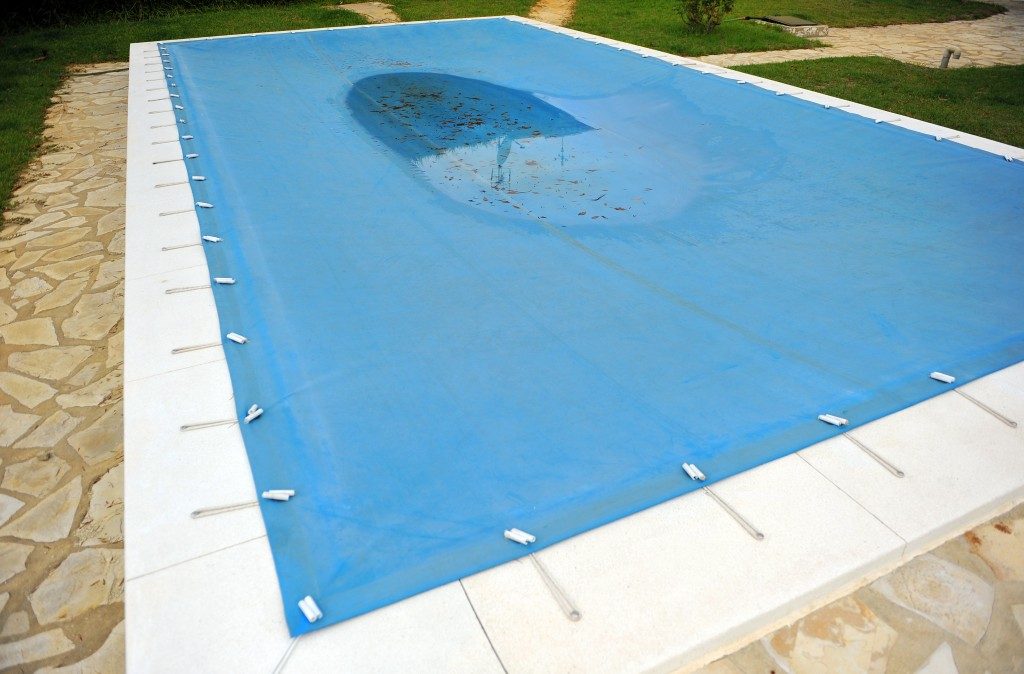


BOTH
If you live anywhere with freezing temperatures, you should absolutely winterize your pool to avoid damage to your system.
What kind of damage?
Well, here’s a list of all the things that can go wrong if you don’t properly close your pool:
- Damaged or burst pipes
- Fatal damage to your pool pump, broken motor
- Fatal damage to your pool heater
- Cracks in your pool wall or frame
You get the idea. It’s not good.
So if it gets down to freezing temperatures where you live, winterizing your pool is usually the best choice.
On the other hand, if you live in a fairly warm climate with mild winters above 50 degrees, then closing your pool is a matter of preference. And if you have a heated pool, you might not even have to close it.
If you liked this post, you might also like:
20 Myths About Pool Heaters: Busted
12 Awesome Swimming Pool Trends Worth Following
The Ultimate Pool Opening Checklist (Open Your Pool Faster)
Check us out in Feedspot’s Top 40 Swimming Pool Blogs & Websites To Follow In 2018!

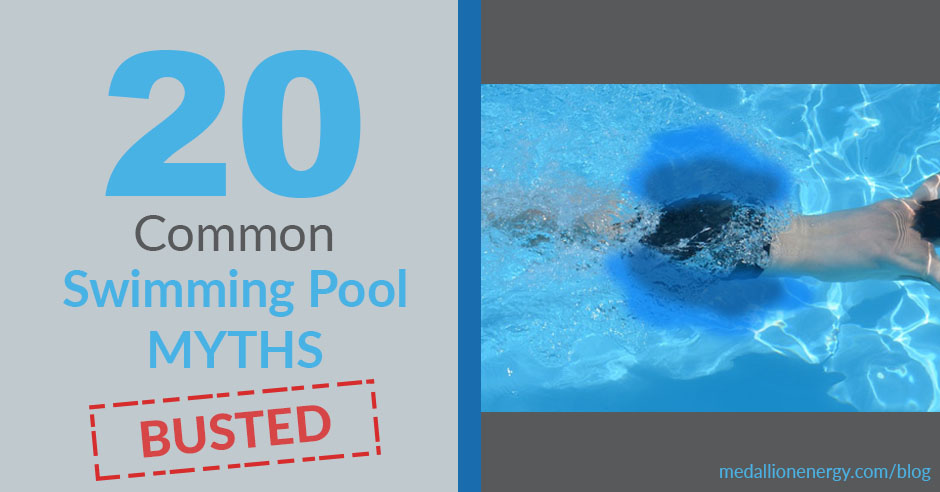

Points are very beneficial to understand the myths and the truth. Really a great blog, loved it and thanks for sharing so beneficial tips about pool maintenance.
Thanks for the comment. Glad you found the information helpful!